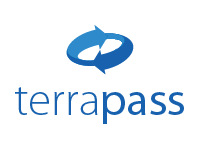A Sustainable Energy Plan: What & Why
Why do you need a sustainable energy plan?
Sustainable energy plan: What & why
by Erin Craig
Why do you need a sustainable energy plan?
Creating a Sustainable Energy Plan is a simple, systematic way to examine, refine, and act on one of the most important aspects of a sustainable business. A plan lets you see where you are, decide what immediate positive changes your company can make, and create long-term practical and actionable goals.
Why create a plan specifically about energy?
Energy use is your most important environmental impact.
For many companies, if you draw a line around your operations - ignoring suppliers and ignoring physical products - your largest potential to do environmental harm comes from your company energy use. Your energy use includes electricity, employee travel, employee commuting and natural gas. And usually, they’re in that order from standpoint of environmental harm.
Energy use creates environmental problems three ways:
1) local emissions, polluting the environment where it's made and/or used;
2) greenhouse gases, contributing to climate change; and
3) consuming natural resources which are limited on the planet, so you need to be sure your use is at least as valuable as any use your great great grandchildren might have in mind.
Of these, climate change holds the most current attention. For this reason, when companies talk about their "carbon footprint" or their "greenhouse gas emissions" or their "climate change goals" - for the most part, those translate into energy issues and energy strategies.
Some major stakeholders care about your energy strategy, for example:
1) Employees who care about the environment - and by far, more people care about the environment than not. According to Ernst & Young, sustainability reporting increases employee loyalty, and has a positive effect on happiness and productivity. Employees want to believe that they work for a company that is part of the solution, not part of the problem. Also, most people believe that companies should bear most of the responsibility/cost for managing environmental ills - not the government, not "we the people" as consumers.
2) Your customers, especially if you sell to large and/or progressive companies. They want to make sure that you are managing your business responsibly.
3) Investor and advocacy groups. This is a bit tricky. If you’re at a public company, there are numerous investor groups interested in your environmental performance, but very few who actually act on it. Similarly, there are powerful and loud advocacy groups, but they aren't likely to bother you if you aren't prominent or successful. Still, there are investors such as HIP Investor, that are measuring the link from greenhouse gas emission reductions to shareholder value and using it as a basis for investment.
A Sustainable Energy Plan should address three substantive topics, and within each topic discuss: the current situation or baseline; opportunities and risks; and a recommended path forward. The big three are:
1) Energy Efficiency - reducing how much energy you use within a given footprint (often measured on a per-employee or per-square foot basis) is the cornerstone of any Sustainable Energy Plan. According to EnergyStar, 30% of energy in commercial and industrial buildings is being used inefficiently or unnecessarily. Using less energy is always a win, and almost never happens by accident or happy coincidence.
2) Energy Footprint – this section is all about your current energy sources and use levels. How nasty or clean is the particular energy you are buying? What choices do you have?
3) Reporting and Disclosure. Often overlooked by energy managers, reporting and disclosure policies can help you make the most of your energy strategy. Most of your interested stakeholders - even your employees - need to be told about your efforts, they won't be able to organically discover them.
Disclosure - what, how much, to whom... requires careful thought. It provides an instant platform for stakeholders to compare your efforts to other company efforts, which may or may not be advantageous for you. Also, stakeholders want you to show forward momentum, and if you aren't moving forward, your disclosures will make that apparent (which is of course exactly why stakeholders want you to disclose).
And yet, disclosure is how people learn about your good work, and it’s a great way to sustain momentum inside the company. In our experience, as long as you do what you say you're going to do, reporting your results will be to your benefit - even if your goals aren't lofty and even if it means disclosing the occasional miss.
What next:
A Sustainable Energy Plan need not be long or complex; it’s a simple first step to coalesce your thinking on energy challenges and opportunities. After that, the work gets a bit harder. To implement your plan, it may take some money. And while we'd all like to help save the world, your actions need to be sized within the context of your particular company's situation - your size, your economics, your visibility to stakeholders, and your locations.
TerraPass can help. We work with companies large and small to create and implement sustainable energy plans. Can we help you take your next step?
About TerraPass
TerraPass's projects help businesses and individuals reduce their greenhouse gas emissions. Our projects create carbon offsets, renewable energy credits (RECs), and sustainable energy. We believe everyone can take action to fight climate change. Learn more at www.terrapass.com.

